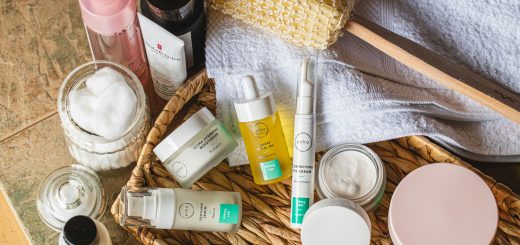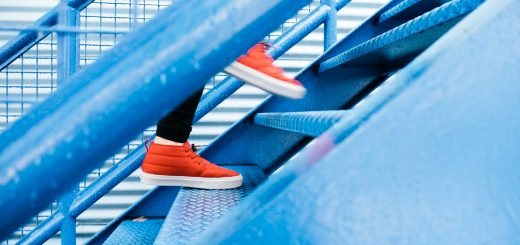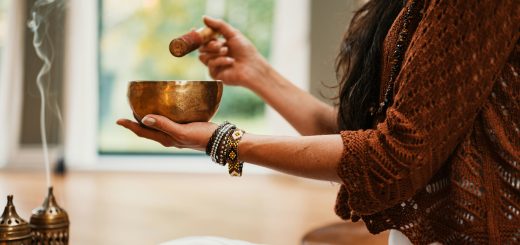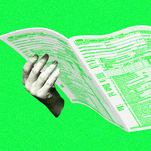AI Meets Your Morning Routine: How Smart Technology is Personalizing Wellness
From sleep tracking and mood analysis to personalized nutrition and smart home environments, artificial intelligence (AI) is revolutionizing how we approach wellness—starting with our morning routines. Whether you’re a techie or a total beginner, the new wave of intelligent wellness tools can help you feel better, think clearer, and live healthier.
Here’s how AI is making mornings—and life—more mindful and customized than ever before.
1. Wake Up Smarter: Personal AI Health Assistants
Remember when your alarm clock just rang and nothing else? Now, AI-powered wellness assistants don’t just wake you—they assess you.
These digital health companions analyze your sleep patterns, heart rate, and even your mood to recommend what your body needs most that day.
Popular tools:
- Whoop Strap & Oura Ring: These wearables don’t just track your sleep—they interpret it. They analyze recovery, stress, heart rate variability, and movement during the night to suggest how hard you should train, whether you need more rest, or when to eat for better energy.
- Fitbit’s Daily Readiness Score: Using machine learning, Fitbit tells you if you’re ready to take on a hard workout or if your body is signaling to take it slow.
Morning use case:
Imagine waking up and checking your AI assistant. It says: “You slept lightly due to room temperature fluctuations. Let’s focus on hydration and skip intense exercise today. A short walk and a high-protein breakfast will support your energy.”
It’s like having a personal trainer, nutritionist, and sleep coach, all in your phone.
2. Home Sweet (Smart) Home: AI-Powered Wellness Environments
Our surroundings impact our well-being. AI now makes it possible to optimize your environment automatically—starting from the moment you open your eyes.
AI smart home features for wellness:
- Lighting: Wake-up lights like Philips Hue with AI integration simulate a natural sunrise to wake you gently. Some smart bulbs even adjust based on your circadian rhythm.
- Temperature: Smart thermostats like Nest Learning Thermostat can adapt to your preferred sleeping and waking temperatures based on data from your routines and health devices.
- Air Quality: Devices like Awair Element or IQAir’s smart monitors use AI to track air quality, humidity, and pollutants—then trigger purifiers or humidifiers automatically to improve indoor conditions.
Morning use case:
You’re still in bed. As you stir, your lights begin to warm, mimicking dawn. The room is already at the optimal temperature, and your AI has boosted the air purifier slightly because pollen levels spiked overnight. You breathe easy, even before your feet hit the floor.
3. You Are What You Eat—According to AI
Making healthy food choices in the morning is hard, especially when you’re short on time or ideas. AI-driven nutrition apps help take the guesswork out of what to eat based on your body’s needs, preferences, and goals.
Apps to check out:
- Zoe: Uses AI to analyze your personal microbiome and blood sugar responses to food, giving you meal suggestions tailored to your body.
- Lumen: A handheld device that measures your metabolism through breath and uses AI to suggest meal plans based on whether your body is burning fat or carbs.
- Whisk & Yummly: AI-powered recipe planners that offer customized meals based on dietary restrictions, available groceries, and health goals.
Morning use case:
After checking your sleep and activity data, your AI assistant notices you’re low on energy reserves. It recommends a breakfast of Greek yogurt with berries and chia seeds—easy to prep and rich in the nutrients you’re lacking.
You can even ask your voice assistant: “What’s a good high-protein breakfast for my workout day?” and get an answer backed by data and your habits.
4. What People Are Actually Using (And Loving)
Let’s ground all this in reality. AI wellness isn’t just for Silicon Valley insiders. Millions of people are already embracing it, and not just with fancy gear.
Real-world examples:
- Sarah, 29, from Austin uses the Eight Sleep Pod—a smart mattress cover—to regulate temperature and improve deep sleep. Her app tracks her heart rate and suggests when to hydrate more or cut down caffeine.
- Michael, 41, from Berlin starts each day by checking his Fitbit Premium dashboard. It adjusts his morning meditation or run based on recovery scores.
- Lina, 35, from Tokyo uses Google Assistant routines to trigger a wellness playlist, dim lights, and turn on her air purifier as she stretches after waking up.
These aren’t tech wizards—just regular people using AI to live better.
5. Getting Started Without Breaking the Bank
You don’t need to spend thousands or build a smart home from scratch to experience AI-powered wellness. Start small. Build habits.
Budget-friendly tips:
| Goal | AI Tool | Approx. Cost |
|---|---|---|
| Better Sleep | Sleep Cycle App or Calm | Free–$69/year |
| Morning Mindfulness | Insight Timer, Headspace | Free–$70/year |
| Smart Lighting | Philips Hue starter bulb | $30 |
| Nutrition Advice | MyFitnessPal or Cronometer (AI suggestions) | Free–$60/year |
| Wellness Routines | Google Assistant / Amazon Alexa | Free with phone or $50 device |
Free ways to test AI wellness:
- Use Google Fit or Apple Health to track sleep and steps. These apps use AI to suggest trends and improvements.
- Set up IFTTT (If This Then That) to create simple AI-driven routines like: “If weather is bad, remind me to stretch indoors.”
- Try free trials of apps like Noom, Calm, or Zoe to see what resonates with your lifestyle.
Final Takeaway: Wellness That Adapts to You
AI isn’t just about robots or self-driving cars. It’s about self-discovery—learning what your body needs and helping you act on it before burnout, fatigue, or stress set in.
By integrating even one or two smart tools into your morning routine, you begin a chain reaction of better choices all day long.
So tomorrow morning, when your alarm gently lifts you out of sleep and your smart lights fill the room with golden light, remember: this isn’t about replacing your instincts—it’s about amplifying them.
Because sometimes, the best version of you just needs a little tech support.
Want to Start Today? Here’s a 5-Minute AI Wellness Morning Routine:
- Check your sleep and recovery score using Fitbit, Oura, or Sleep Cycle.
- Ask your AI assistant how your day looks and get wellness suggestions.
- Let your smart light gently brighten as you hydrate and stretch.
- Scan a personalized breakfast recipe from an app like Yummly or Lumen.
- Enjoy your morning with intention, knowing AI’s got your back.
Smart. Simple. Personalized. The future of wellness begins when you wake up.












